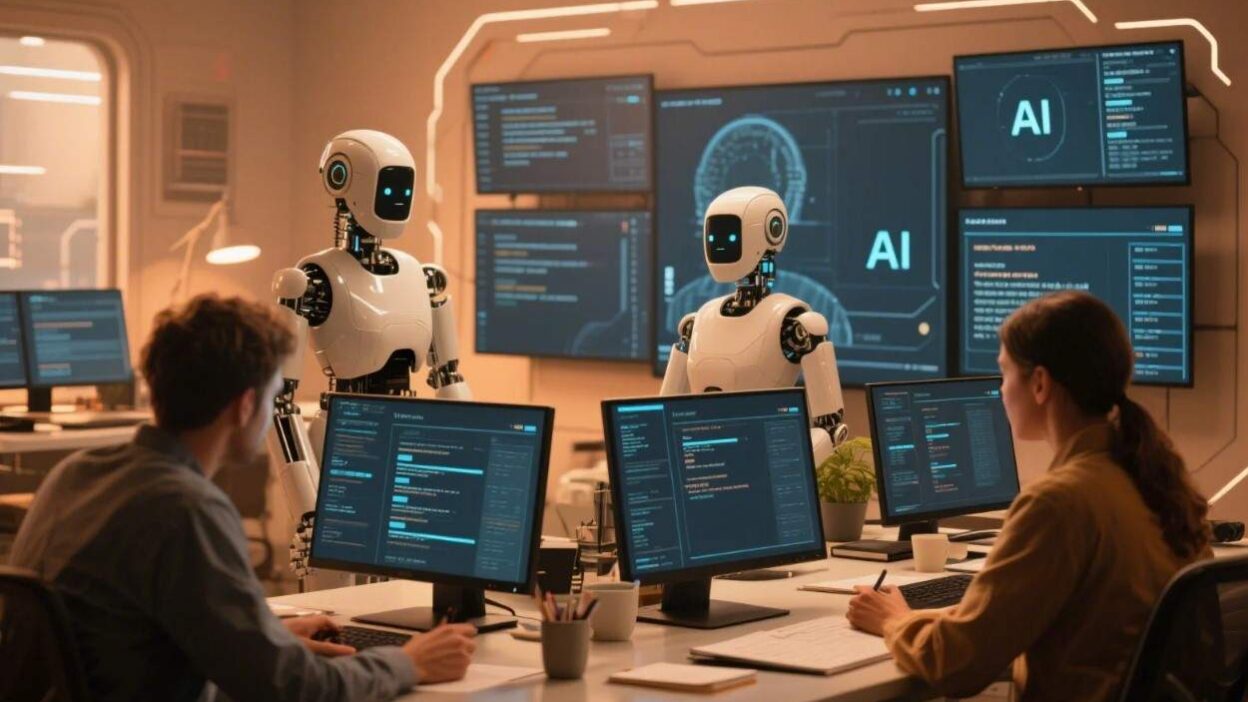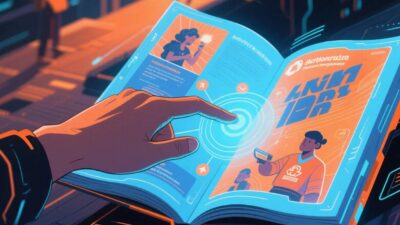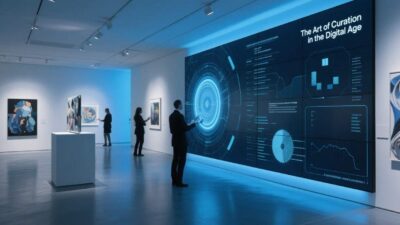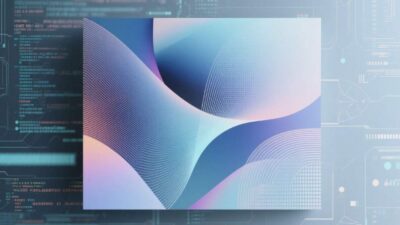When Machines Join the Writing Room
Screenwriting has long been a deeply human endeavor—a dance of imagination, emotion, and collaboration between writers, directors, and actors. But today, a new collaborator is stepping into the spotlight: artificial intelligence. Far from replacing human writers, AI is emerging as a co-author, enhancing creativity, streamlining workflows, and unlocking new storytelling possibilities. This report explores how AI is transforming screenwriting, from idea generation to final drafts, and the implications for the future of storytelling.
AI as a Co-Author: Redefining the Screenwriter’s Toolkit
AI’s role in screenwriting is not about replacing human intuition but augmenting it. By analyzing vast datasets of scripts, films, and audience preferences, AI tools provide writers with fresh perspectives, structural guidance, and even emotional insights—turning the writing process into a dynamic, human-AI partnership.
How AI Assists in Screenwriting
- Idea Generation: Stuck on a plot twist? AI tools like Sudowrite or Jasper can generate hundreds of story ideas, character backstories, or dialogue snippets based on keywords (e.g., “sci-fi heist,” “family reconciliation”). For example, a writer struggling with a hero’s motivation might input “traumatized detective” and receive AI-generated options like “childhood loss drives obsession with justice” or “guilt over a failed case fuels recklessness.”
- Character Development: AI analyzes character archetypes, dialogue patterns, and behavioral trends to suggest nuanced traits. A writer crafting a villain might use AI to explore motivations beyond “evil”—e.g., “a former hero corrupted by systemic betrayal” or “a victim of childhood abuse lashing out.”
- Dialogue Polishing: Tools like Descript or Copy.ai refine dialogue to sound natural, avoid clichés, and match a character’s voice. For instance, an AI might flag stilted lines (“I will not hesitate!”) and suggest rewrites (“You think I’ll back down? Fine. But I’ll make you regret it”).
- Plot Structuring: AI evaluates pacing, conflict, and resolution using algorithms trained on successful scripts. A writer could input a rough outline, and the tool might suggest reordering scenes to heighten tension or adding subplots to deepen character arcs.
Benefits: Why Writers Are Welcoming AI as a Co-Author
The collaboration between humans and AI in screenwriting offers unprecedented advantages:
1. Overcoming Writer’s Block
AI acts as a “brainstorming partner,” generating ideas when writers hit creative roadblocks. A 2023 study by ScriptLab found that 78% of writers using AI tools reported reduced writer’s block, with 45% completing drafts 30% faster.
2. Expanding Creative Horizons
AI exposes writers to diverse storytelling traditions and underrepresented perspectives. For example, a tool trained on global scripts might suggest incorporating magical realism from Latin American literature or non-linear narratives from East Asian cinema, broadening a writer’s stylistic toolkit.
3. Democratizing Screenwriting
AI lowers barriers to entry for new writers. Platforms like Reedsy or WriterDuet integrate AI tools that guide beginners through structure, character development, and dialogue—empowering aspiring screenwriters to compete with seasoned pros.
4. Enhancing Emotional Depth
AI analyzes audience data (e.g., box office trends, streaming platform preferences) to suggest emotionally resonant moments. A writer crafting a romance might use AI to identify “small, intimate gestures” (e.g., a shared laugh over a childhood photo) that audiences find more compelling than grand declarations.
Challenges: Navigating the Human-AI Collaboration
While transformative, AI’s role in screenwriting raises critical questions:
1. The “Human Touch” vs. Algorithmic Efficiency
Critics argue that AI-generated scripts lack the nuance of human writing—subtle emotional beats, cultural references, or intentional imperfections that make stories relatable. For example, an AI might craft a heartfelt monologue but fail to capture the raw, unpolished tone of a real person’s speech.
2. Ethical and Copyright Concerns
Who owns AI-generated scripts? If a writer uses an AI tool to draft a scene, does the tool’s developer (e.g., OpenAI) hold partial copyright? Current laws are unclear, creating risks for writers and studios.
3. Over-Reliance on AI
There’s a danger of writers becoming overly dependent on AI, stifling their own creativity. A 2024 survey by Variety found that 22% of screenwriters admitted to “outsourcing” key plot decisions to AI, fearing their ideas would seem “unoriginal” without algorithmic validation.
4. Bias in Training Data
AI tools are only as unbiased as their training data. Scripts trained on Hollywood’s historical output (e.g., male-dominated blockbusters) may perpetuate stereotypes, such as underrepresenting female leads or marginalizing non-Western narratives.
The Future: AI as a Creative Equalizer
Innovators are already addressing these challenges, paving the way for a more balanced human-AI collaboration:
- Ethical AI Frameworks: Companies like DeepMind are developing tools with “creativity guards,” ensuring AI-generated content complements—not replaces—human intent. For example, an AI might suggest a plot twist but let the writer decide its tone or emotional weight.
- Hybrid Workflows: Studios are integrating AI into pre-production, where it handles technical tasks (e.g., scheduling shoots, budgeting) while writers focus on storytelling. This “division of labor” lets humans excel at what they do best: emotion, nuance, and vision.
- Education and Advocacy: Programs like AI for Writers teach screenwriters to use AI as a tool, not a crutch. Workshops emphasize “prompt engineering”—crafting specific, creative queries to get the most out of AI tools.
The Synergy of Human Imagination and AI Ingenuity
AI is not a threat to screenwriters—it’s a collaborator. By handling tedious tasks, generating fresh ideas, and uncovering hidden storytelling patterns, AI empowers writers to focus on what they do best: crafting narratives that resonate with hearts and minds. As technology evolves, the future of screenwriting will belong to those who embrace this synergy—where human creativity and AI precision combine to create stories that are both innovative and deeply human.
The writing room of tomorrow isn’t just a desk and a laptop—it’s a dynamic partnership between minds and machines, writing the next chapter of cinematic history.



